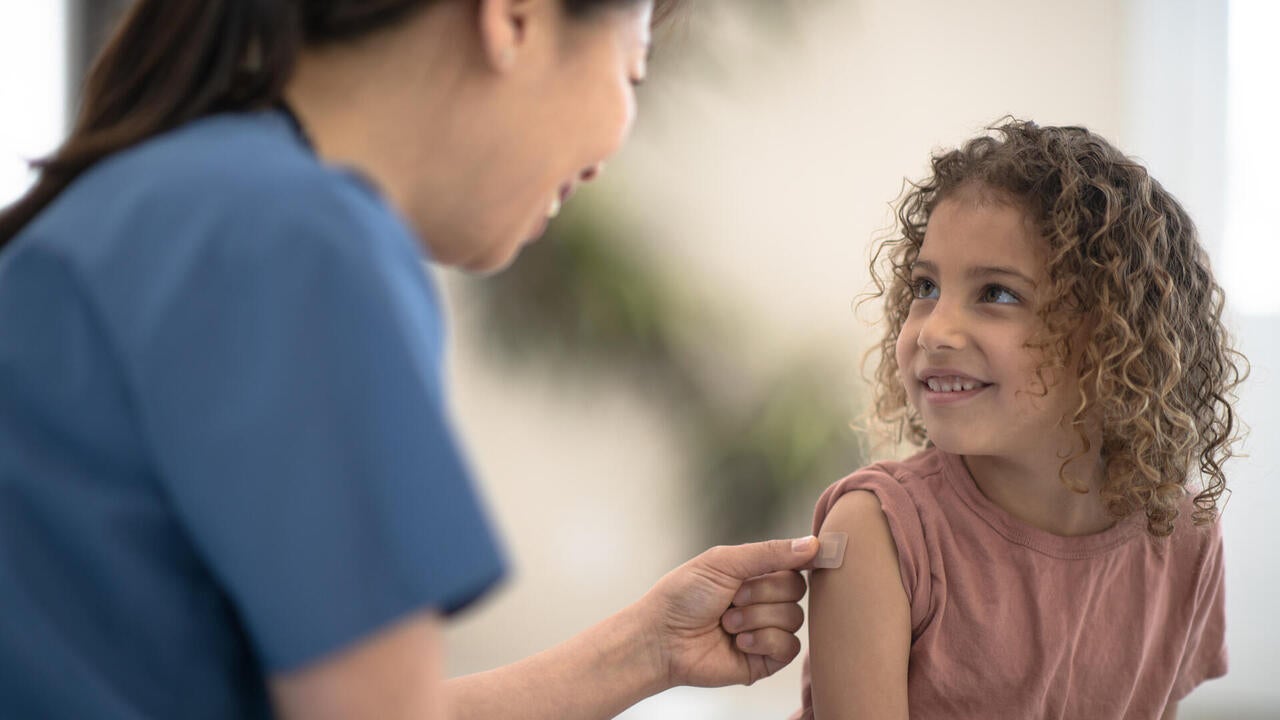
Vaccinating children against COVID-19
Public health experts weigh in as parents flock to vaccinate their children

Public health experts weigh in as parents flock to vaccinate their children
By Natalie Quinlan University RelationsWithin the initial 12 hours of opening, Ontario reported more than 68,000 bookings to vaccinate children against COVID-19.
The wave of interest in the newly approved Pfizer-BioNTech for those aged five to 11 has health experts weighing in on the benefits and rare risks associated with the shot.
“Unvaccinated people are much more likely to get COVID-19, which can cause serious illness and death in any child,” says Kelly Grindrod, a pharmacist and professor with Waterloo’s School of Pharmacy. “In vaccine trials, children who got two doses of the Pfizer COVID-19 vaccine had a 91 per cent lower chance of getting sick with the virus and experiencing long-term health effect afterwards — it also protects children from getting sick with the Delta variant.”
Long COVID — otherwise known as “post COVID-19 condition” — is being used to describe the range of symptoms that persist for weeks or months after a COVID-19 infection. It’s the reality some have faced after contracting the virus with symptoms ranging from cognitive impairment or brain fog, to heart symptoms like chest pain and palpitations. As with adults, vaccinating children can significantly increase one’s protection against contracting the virus and experiencing long COVID symptoms as a result.
“The Pfizer vaccine for children uses a lower dose than what’s given to teens and adults. Smaller vaccine doses for children work well because children have stronger immune responses than adults,” says Dr. Andrea Chittle, a primary care physician and Master of Public Health student at the University of Waterloo. “No new serious side effects were seen in the Pfizer vaccine trials for children. We know these vaccines are safe for people who have allergies to foods, drugs, insect stings or other vaccines.”
According to Dr. Chittle, for every one million Pfizer doses given to people aged 12 and older, only two to eight cases of anaphylaxis occurred — a severe allergic reaction— highlighting the rarity of side effects.
Boosters for adults now available
As parents book their children up for vaccines, adults like Waterloo’s President and Vice-Chancellor Vivek Goel are preparing to receive his third dose, otherwise known as a booster shot.
“It’s important that we remain in this together and do our part,” Goel says. “It’s also encouraging to see so many parents and guardians being proactive in the effort to protect their children against COVID-19. Vaccines are very effective, and boosters add another layer of protection for myself and my community. I encourage everyone to get their booster as they become eligible.”
Read individual Tweet on Twitter
As of November 6, booster shots are available six months after the second dose for those considered high-risk, aged 70 or older, are health-care workers or essential caregivers in congregate settings, people who received two doses of the AstraZeneca vaccine or one dose of Janssen, and First Nations, Inuit and Metis adults and their non-Indigenous household members.
Ontario residents can continue to book their vaccination and booster appointments through the province’s website.

Read more
Professor Kelly Grindrod and Dr. Andrea Chittle provide answers to questions related to COVID-19 vaccine for children

Read more
Undergraduate Science student finds a way to address children's back to school anxiety during the pandemic

Read more
Dr. Tejal Patel discusses the symptoms that persist in people with long COVID and how they can be treated.
The University of Waterloo acknowledges that much of our work takes place on the traditional territory of the Neutral, Anishinaabeg, and Haudenosaunee peoples. Our main campus is situated on the Haldimand Tract, the land granted to the Six Nations that includes six miles on each side of the Grand River. Our active work toward reconciliation takes place across our campuses through research, learning, teaching, and community building, and is co-ordinated within the Office of Indigenous Relations.